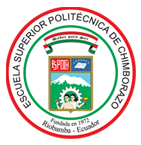Forest inventory with a bioethical approach for the sustainable protection of resources in the Andil Experimental Farm of Jipijapa
DOI:
https://doi.org/10.47187/perf.v1i31.274Keywords:
bioethics, forest sciences, protection, species, diversity, ecosystemAbstract
The bioethical principles: beneficence, non-maleficence, autonomy and justice, have been analyzed in detail in the medical sciences, however, the possibility of contextualization in other sciences has been discovered. The study aims to address actions to protect forest resources in the Andil experimental farm. Precisely, it starts from the existing problem between anthropogenic actions and the effects on natural ecosystems, where large losses of species are caused annually and others are on the verge of extinction. Bioethics as a science of survival is intertwined with nature, however, there are no studies in Ecuador that reveal this relationship. It is proposed as a hypothetical assumption that the apprehension of bioethical principles guarantees the protection of ecosystems. The objective is to analyze the relationship between bioethics and the protection of forest resources of the Andil experimental farm. In the methodology, methods at the theoretical and empirical level were considered, with statistical-mathematical foundations. The main result reveals that, in the study area, south of Manabí, there is a numerical decrease in floristic and faunal species, with emphasis on forest resources, which has caused mortality of other species and migration.
Downloads
References
Arias-Rodríguez FQ. Bioética ambiental y vida cotidiana: Reflexiones sobre la visión de sustentabilidad y el cambio climático durante el 2020 en el departamento del Meta (Colombia). Rev Latinoam Bioética. 2022;22(2):11-38.
Parra-González CM. Ecopedagogía bioética para la conservación de la fauna silvestre. Conocimiento global. 2019;4(2):1-19.
Rojas-Rendón AJ. Bioética en el aprovechamiento forestal maderero y sus impactos sobre la fauna. PLURIVERSIDAD. 2020;(5):173-189.
Arce-Rojas RS. El enfoque del desarrollo forestal en el Perú. Siembra. 2022;9(2).
Arce-Rojas RS. Pandemias, bosques y ciencias forestales. Rev For Peru. 2021;36(1):4-21.
Delgado-Farías JL. Los árboles que esconden al bosque: Miguel Ángel de Quevedo y los orígenes de la ciencia forestal en México. 2019.
González-Benito A. Revisión teórica de los modelos de orientación educativa. RECIE Rev Caribb Investig Educ. 2018;2(2):43-60.
Montoya-Jiménez AE. Principios de la bioética principalista de Beauchamp y Childress implícitos en la ley 23 de 1981, de ética médica, a la luz de 3 estudios de casos analizados y fallados por el tribunal de ética médica de Cundinamarca. 2019.
Paoli-Bolio FJ. Multi, inter y transdisciplinariedad. Problema Anu Filos Teor Derecho. 2019;(13):347-357.
Restrepo-Martínez RE. Las ciencias forestales y la gestión de la biodiversidad: apuntes históricos para una reivindicación. Biodivers Pract. 2019;4(1):189-211.
Severo-Arce RR. Aproximações para o desenvolvimento de uma bioética florestal a partir do caso peruano. Rev Latinoam Bioética. 2020;20(1):107-122.
Vasco-Morales AM. Implementación de viveros forestales en campo: Guía para generar modelos ganaderos basados en árboles. Fondo Editorial Biogénesis. 2022.
Velásquez-García GV. Siete décadas de Ecología y Ciencias Forestales en la FCA. Rev Fac Nac Agron Medellín. 2022;75(1).
Calvache-Pejendino JC. Estrategias para el mejoramiento de la calidad ambiental en la comuna tres, San Juan de Pasto. RIAA. 2021;12(1):3.
Ávila-Rabaza ME. La superación del maestro primario: vía para el mejoramiento de su desempeño profesional pedagógico ambiental. Univ Soc. 2019;11(5):89-98.
Luján-Álvarez CU. Sistema de gestión estratégica forestal participativa para el desarrollo forestal sustentable. Madera y bosques. 2021;27(1).
Domínguez-Hernández GG. El enfrentamiento al cambio climático en la especialidad forestal de la educación técnica profesional. Rev Cient Amaz. 2019;2(3):5-16.
Méndez-Espinoza C. Mecanismos de respuesta al estrés abiótico: hacia una perspectiva de las especies forestales. Rev Mex Cienc For. 2019;10(56):33-64.
Cué-García JL. Producción y conservación de semillas forestales: situación actual y perspectivas en Ecuador. Rev Cubana Cienc For. 2019;7(3):365-376.
Altamirano-Giler S. La contabilidad verde en el Ecuador: avances y desafíos para alcanzar su institucionalización. Prospectivas UTC Rev Cienc Adm Econ. 2020;3(2):186-202.
García-Molano DC, Tobón-Mejía DA. Ética y gestión forestal: un análisis desde la perspectiva del desarrollo sostenible. Rev Investig Desarro Innov. 2019;9(1):45-56.
Smith J, Brown R, Johnson P. Applying Ethical Principles to Forest Management: A Case Study in Sustainable Logging. J Environ Ethics. 2020;45(3):289-302. doi:10.1007/s10806-020-09837-4.
López-Morales R, Martínez-Gutiérrez E, Pérez-Ríos F. Bioética y conservación de recursos naturales: un enfoque desde las ciencias forestales. Rev Ética Ambient Sostenibilidad. 2021;7(2):78-91.
Fernández-González A, Ruiz-Gutiérrez E, Sánchez-Castro M. Aplicación de principios bioéticos en la gestión forestal comunitaria: lecciones aprendidas de experiencias locales en América Latina. Bosques Sostenibles. 2022;4(1):20-33.
Johnson K, Thompson S, Williams D. Ethical Dimensions of Forest Conservation and Restoration: Perspectives from Indigenous Communities. Conserv Ethics Q. 2023;17(2):145-160.
Published
How to Cite
Issue
Section
License

This work is licensed under a Creative Commons Attribution-NonCommercial 4.0 International License.


























